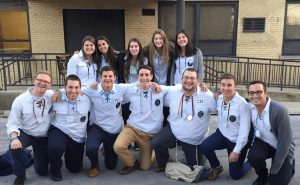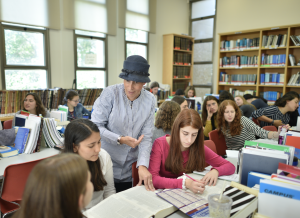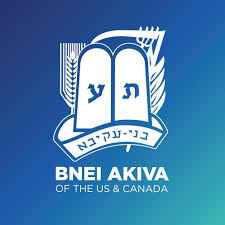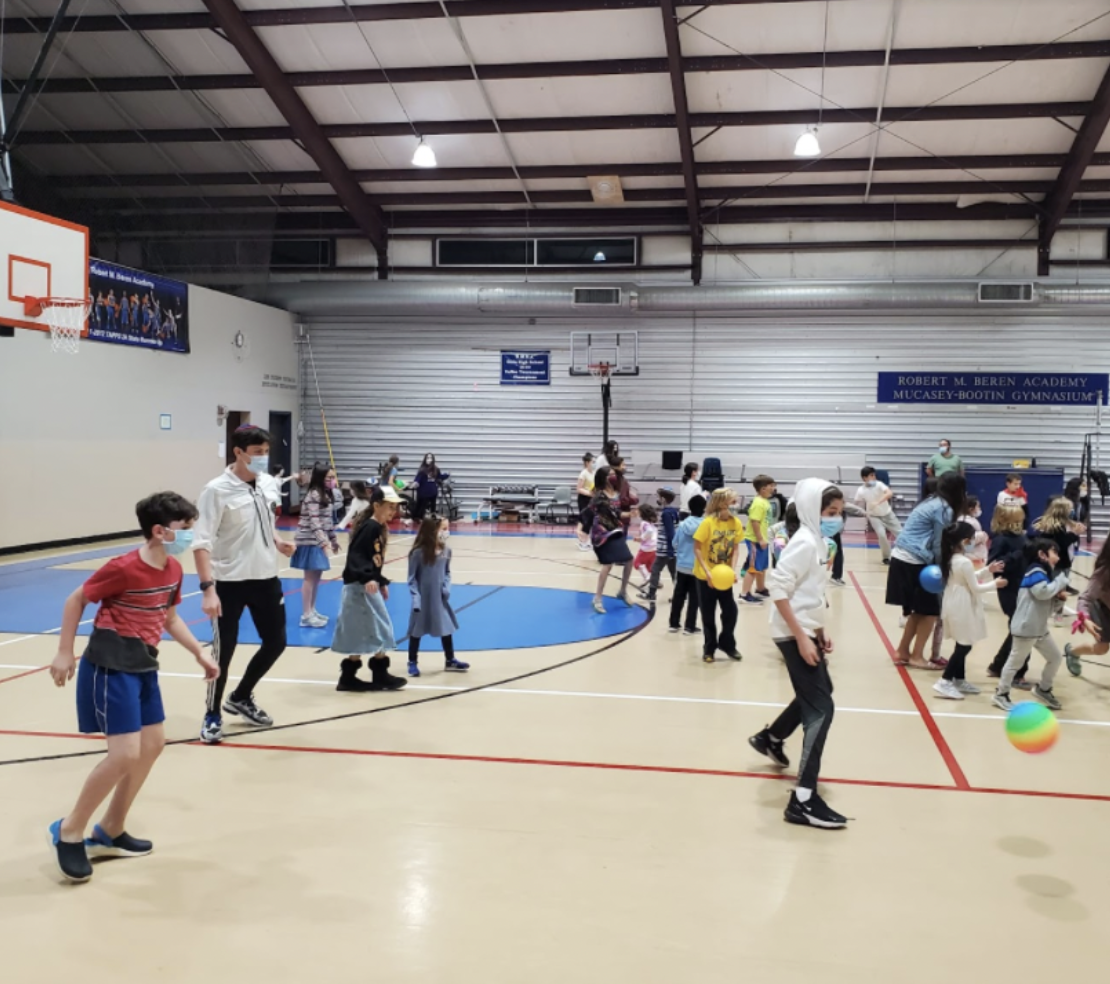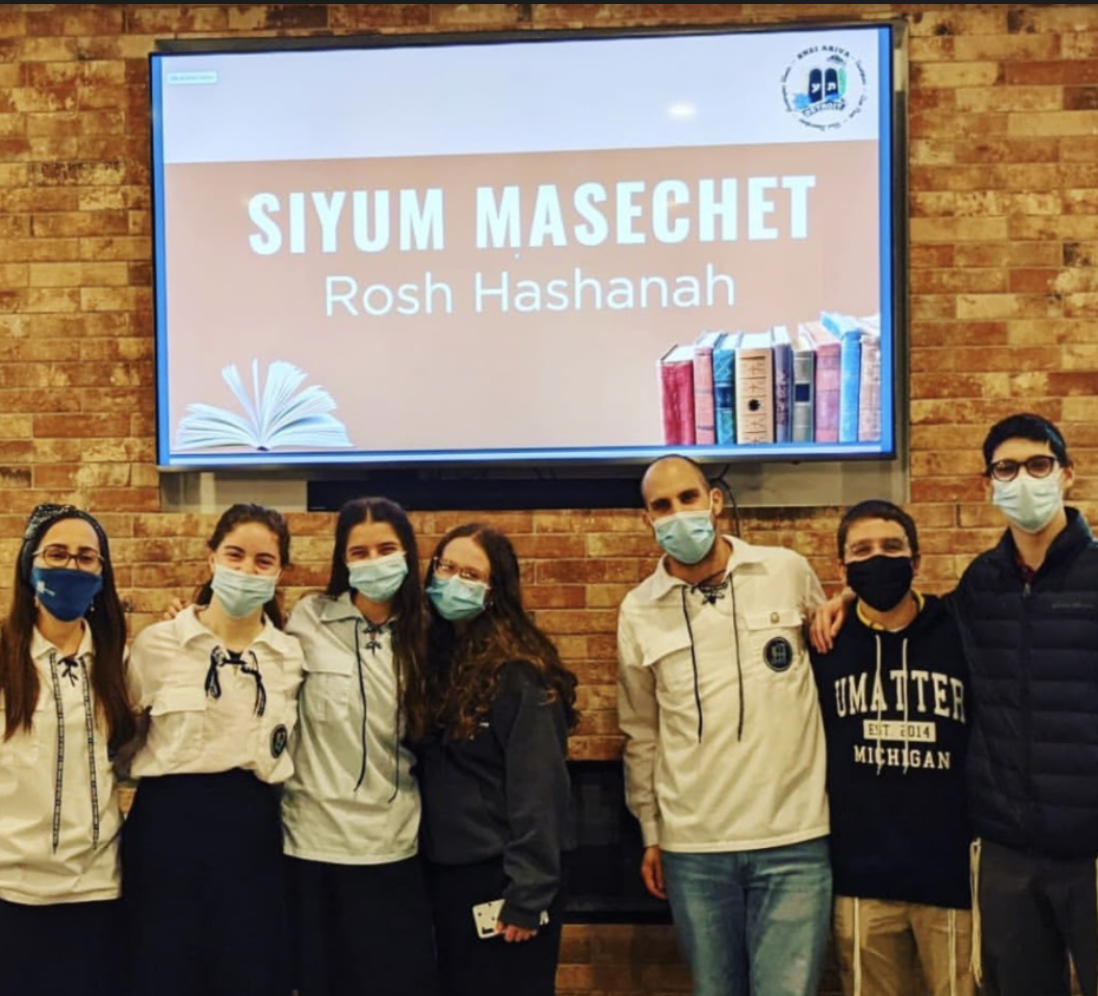By: Ariel Wernick | HA Member
In describing the event of Bnei Yisrael crossing the Yam Suf the Torah describes how Moshe raised his hand over the sea and Hashem split the sea with the wind. The Torah then details Bnei Yisrael crossing the Yam Suf saying “וַיָּבֹ֧אוּ בְנֵֽי־יִשְׂרָאֵ֛ל בְּת֥וֹךְ הַיָּ֖ם בַּיַּבָּשָׁ֑ה וְהַמַּ֤יִם לָהֶם֙ חֹמָ֔ה מִֽימִינָ֖ם וּמִשְּׂמֹאלָֽם׃; “and the Israelites went into the sea on dry ground, the waters forming a wall for them on their right and on their left.”(Exodus 12,22). The Torah proceeds describing the Egyptians following Bnei Yisrael into the Yam Suf to be wiped out by the crashing waves of the water. The Torah then says a second time that Bnei Yisrael crossed the Yam Suf writing, “וּבְנֵ֧י יִשְׂרָאֵ֛ל הָלְכ֥וּ בַיַּבָּשָׁ֖ה בְּת֣וֹךְ הַיָּ֑ם וְהַמַּ֤יִם לָהֶם֙ חֹמָ֔ה מִֽימִינָ֖ם וּמִשְּׂמֹאלָֽם׃”; “But the Israelites had marched through the sea on dry ground, the waters forming a wall for them on their right and on their left.”(Exodus 14,29). The retelling of Bnei Yisrael crossing the Yam Suf seems redundant and out of place, especially because the second mentioning is almost identical to the first making the pasuk seems unnecessary. We are left to ask why this pasuk was written and what it is meant to add.
In the opening lines of Parshat Beshalach the Torah recounts the words of Pharaoh, writing, “וְאָמַ֤ר פַּרְעֹה֙ לִבְנֵ֣י יִשְׂרָאֵ֔ל נְבֻכִ֥ים הֵ֖ם בָּאָ֑רֶץ סָגַ֥ר עֲלֵיהֶ֖ם הַמִּדְבָּֽר׃”; “And Pharaoh said to Bnei Yisrael, They are astray in the in the land; the wilderness has closed in on them”(Exodus 14;3). Rashi asks how Pharaoh can be speaking to Bnei Yisrael they had already left Egypt. The Targum Yonatan Uziel answers Rashi’s question saying how there were two Jews who had refused to leave Egypt because they were happy in Egypt. These two Jews were Daatan and Aviram, and this was Pharaoh speaking to them. This answer poses a problem because we know we are revisited by Daatan and Aviram later in the Midbar by the stories of the Manna and Korach’s rebellion, so how was it that they remained in Egypt?
The Chidushei Maharal Diskin writes how when Daatan and Aviram were placed as taskmasters over the Jews in Egypt they would take lashes upon themselves to weaken the burden for their fellow people of Bnei Yisrael. When Bnei Yisrael left Egypt Daatan and Aviram stayed, not wanting to leave their wealth. When the Egyptians chased after the Jews, as the last remaining Jews of Egypt they were brought along. The Chidushei Maharal Diskin argues that the retelling of Bnei Yisrael crossing the Yam Suf is not a redundancy, rather it is the story of a second splitting of the sea. After the sea crashed its waves killing all the Egyptians it opened a second time, making way for Daatan and Aviram to cross the water and join the rest of Bnei Yisrael. The Maharal Diskin argues that although Daatan and Aviram showed a lack of belief and challenged Hashem and the mission of Bnei Yisrael, Hashem split the sea for them because they cared and looked out for the Jewish slaves when they were Task Masters.
It is a tremendous trait of Hashem that he would do the miracle of splitting the sea a second time only to save two people. Hashem saved two people who often did not follow in ways he would like them to, and had problematic beliefs and tendencies. Ignoring their bad traits, because Daatan and Aviram felt a responsibility and cared for another Jew, Hashem felt a responsibility to care for them. We can learn from this that although there might be other people within the greater camp of Bnei Yisrael who may disagree with one’s personal beliefs or do things that one may not approve or like at certain points, as long as a person feels a part and cares for his brothers of Bnei Yisrael, we still have a responsibility to reach out, support and befriend that person regardless of their downfalls.

